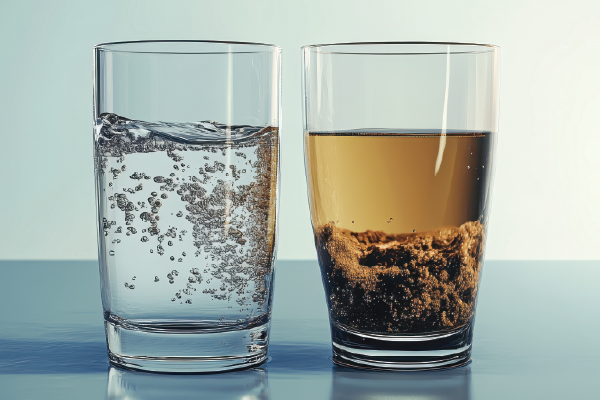Soda is one of the most popular beverages in the world, loved for its fizz, sweetness, and refreshing taste. However, many people believe that drinking soda can lead to dehydration. Is it true or is it just a Myth? We put it together and find out if soda really leaves you thirsty or if it’s a misunderstanding.
The Myth: Soda Causes Dehydration
You may have heard that soda dehydrates you because it contains caffeine and sugar. Some claim that drinking soda makes you thirstier than craving. But is there any truth to this?
Fact: Understanding Soda’s Effects and Hydration
To understand whether soda dehydrates you, let’s look at its important ingredients and how it affects the body:
1. Caffeine and Dehydration
Caffeine is a mild diuretic, which means it can increase urine production. This led to the confidence that caffeinated drinks such as cola and energy drinks would lose more water than you gain. However, research shows that the diuretic effect of caffeine is not strong enough to cause actual dehydration, especially in people who regularly consume it. Your body adjusts to caffeine intake over time, so a can of soda does not make a huge difference in your hydration levels.
2. Sugar and Thirst
Sodas are high in sugar, which can make you feel thirstier. When you consume a sugary drink, your body will try to balance the sugar levels in your blood by drawing water from your mouth, making you crave more liquid. However, this doesn’t mean that soda dehydrates you—it just doesn’t calm thirst as effectively as water.
3. Carbon Dioxide and Hydration
Did You Know? The fizz in soda comes from carbon dioxide, which can make some people feel bloated or feel full. This might lead to drinking less fluid overall, but it doesn’t mean that the soda will dehydrate directly. In fact, studies suggest that carbonated water hydrates just as well as still water.
Can Soda be Replaced with Water?

While soda does contain water and can contribute to your daily liquid intake, it is not the best choice for hydration. Here’s why:
- Higher Sugar: Too much sugar can cause health problems such as weight gain, increased thirst, and even health problems like diabetes.
- Acidic Nature: The acids in soda (like phosphoric acid) can damage teeth and affect bone health.
- Empty Calories: Unlike water, soda doesn’t provide important nutrients, making it a poor choice for hydration.
What About Diet Soda?
Diet sodas contain artificial sweeteners instead of sugar but still have caffeine and carbonation. While they don’t cause the sugar-related thirst effect, they still aren’t as hydrating as plain water.
The Best Way to Stay Hydrated
If you want to stay hydrated properly. Here are some tips to keep your body well-hydrated:
- Drink 8-10 glasses of water daily.
- Eat fruits and vegetables that have high water content, like watermelon and cucumbers.
- If you are craving soda, try sparkling water with a splash of fruit juice for a healthier alternative.
Fun Facts About Soda & Hydration
- Soda Contains Over 90% Water — Despite its sugar and caffeine, soda is mostly water, which means it does contribute to your hydration.
- Caffeine in Soda is Much Lower Than in Coffee — A can of cola has about 30-50 mg of caffeine, and coffee can have about 95 mg or more.
- Diet Soda has No Sugar, but it’s Still Not Ideal for Hydration — The artificial sweeteners in diet soda may trick the brain into craving more sugar, leading to increased consumption.
- Your Body Can Adapt to Caffeine — If you regularly drink it, it will make your body less sensitive to the diuretic effects of caffeine.
- Soda Can Reduce Saliva Production — The acidity and sugar in soda can lead to dry mouth, making you feel thirstier over time.
- High Sugar Drinks Can Cause a ‘False Hydration’ Feeling — Your body might feel temporarily satisfied, but excessive sugar can lead to more dehydration.
- Carbonation Doesn’t Affect Hydration — Many people believe that the fizzy drinks are dehydrated, but carbonation itself has no impact on hydration levels.
- Soda Can Make You Thirstier — The combination of sugar and acid in soda may leave a persistent dryness in your mouth.
- Sports Drinks vs. Soda — Sports drinks contain electrolytes that help rehydrate, whereas soda contains mostly sugar and caffeine, which may not be as effective.
- The “Soda Dehydrates You” Myth Originated from Coffee Studies — Early studies on coffee’s diuretic effects led to the belief that all caffeinated drinks cause dehydration, but later research proved otherwise.
Final Verdict: Should You Drink Soda for Hydration?
The answer is, yes and no. Soda does provide hydration, but it is not the healthiest option. If you are truly thirsty and need to stay hydrated, water is always the best choice. However, if you drink cans of soda from time to time, you will not be dehydrated if you compensate for your adequate fluid intake all day.
Conclusion
The idea that soda dehydrates you is mostly a myth. While soda contains caffeine and sugar, which can have mild diuretic and thirst-inducing effects, it still provides hydration since it is made up of over 90% water. The main issue with soda is not dehydration but rather its high sugar content, acidity, and lack of essential nutrients, which can negatively affect overall health.
The diet sodas remove the sugar problem, they still contain artificial sweeteners and caffeine, which are not the best for hydration. Carbonation itself does not dehydrate you, though it may cause a temporary feeling of fullness, reducing your overall water intake.
